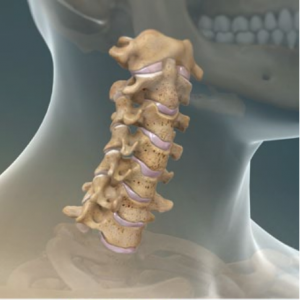Do you have pain in your neck and you aren’t sure why? Many adults suffer from neck pain at some point in their lives. Neck pain is a common problem that can severely impact your quality of life. It can limit your ability to be active. It can cause you to miss out on daily activities such as work, school, playing with your children or grandchildren, and more. Neck pain can involve just the neck and shoulders, or it can radiate down your arms as well. The pain can be dull or severe, like an electric shock in your arm.[1] Cervical spine injuries can develop degenerative changes that may lead to arthritis and stenosis. These changes are usually, but not always, related to advancing age[2]. Chronic neck pain can be debilitating and disheartening. Keep reading for more information on common causes, symptoms, and treatments for neck pain.
Common Causes of Neck Pain
There are many different causes that may lead to pain in your neck. Some causes of neck pain include poor posture, whiplash, TMJ disorders, stress, carrying a heavy backpack or purse on one shoulder, or sleeping in strange positions[3]. In many cases, neck pain is muscle-related. Muscle tension, cramps, and strains can all cause discomfort. Neck pain can also be caused by compression of the spinal nerves. Herniated discs or bone growths caused by osteoarthritis can press against the nerves. Fractures of the spine can reduce the amount of space around them. This type of pain may not go away, even after weeks.
About the Cervical Spine
It’s important to learn about the structure of the cervical spine (the neck region) to better understand neck pain. Your cervical spine is made up of seven cervical vertebrae. Between these vertebrae are discs. They cushion the bones and allow your neck to bend and twist. They also act as shock absorbers during activity.[4] The spine protects your spinal cord, which travels through a space called the spinal canal. Branches of spinal nerves exit the spine through spaces on both sides of your spine. These travel down to your shoulders and arms.
Symptoms
Symptoms of neck pain can vary depending on the cause of your pain and the severity of your injury. You may have muscle spasms. You may have headaches. You may have trouble bending and rotating your neck.[5] These symptoms may get worse with movement. Problems in the neck can also cause pain in your shoulders. It can cause tingling or weakness in your arm, and numbness in your arm or hand.
Treatment
Some types of neck pain are treated with over-the-counter medications and ointments. Many patients improve over time or with conservative treatment and do not require surgery. Conservative treatment may include over-the-counter medication, rest, reduction of physical activity, heat, ice, and physical therapy. If these methods are not effective, your healthcare provider may recommend prescription medications or injection therapy. You may also benefit from a cervical collar. This stabilizes your neck.
Exercising is a cheap and effective way to help manage chronic pain. It has been proven that exercising at least a few times a week can help decrease pain and improve function, mobility, and mood. At Spinal Interventions, we encourage our patients to take part in active rehabilitation programs including diet and daily exercise. Before starting any exercise programs, make sure to consult your physician about what the best plan is for you.
Spinal Interventions provides interventional pain management treatments for neck pain with our primary emphasis on minimally invasive procedures. We perform these injections in our in-office suites, which contain C-arm fluoroscopy, lead-lined walls, and patient monitoring equipment. Our experienced physicians are board-certified in anesthesia and pain medicine. This allows patients to receive safe, appropriate sedation when needed. Injections in the neck may include cervical epidural steroid injections, nerve root blocks, facet injections and radiofrequency ablations, etc.
If these treatments do not help, you may benefit from surgery to correct a problem in your cervical spine. Spinal Interventions works hard to provide patients with the best care possible. We understand that even with our treatments, we may not have the total solution. Therefore, we also work to coordinate patient care in conjunction with other specialists such as physiatrists, physical therapists, spine surgeons, rehabilitation facilities, and psychologists.
Don’t let chronic pain interfere with your life! If you’re dealing with chronic pain, you know how debilitating it can be. Don’t let pain keep you from doing the things you love. Take the first step to living pain free and call Spinal Interventions today at (801) 223-4860 for a consultation.
[1] https://www.mayoclinic.org/symptoms/neck-pain/basics/definition/sym-20050882
[2] https://www.verywellhealth.com/cervical-spine-296578
[3] https://www.mayoclinic.org/symptoms/neck-pain/basics/causes/sym-20050882
[4] https://www.aans.org/en/Patients/Neurosurgical-Conditions-and-Treatments/Cervical-Spine
[5] https://viewmedica.com/vm/index/brochure/6793/neckpain/en



